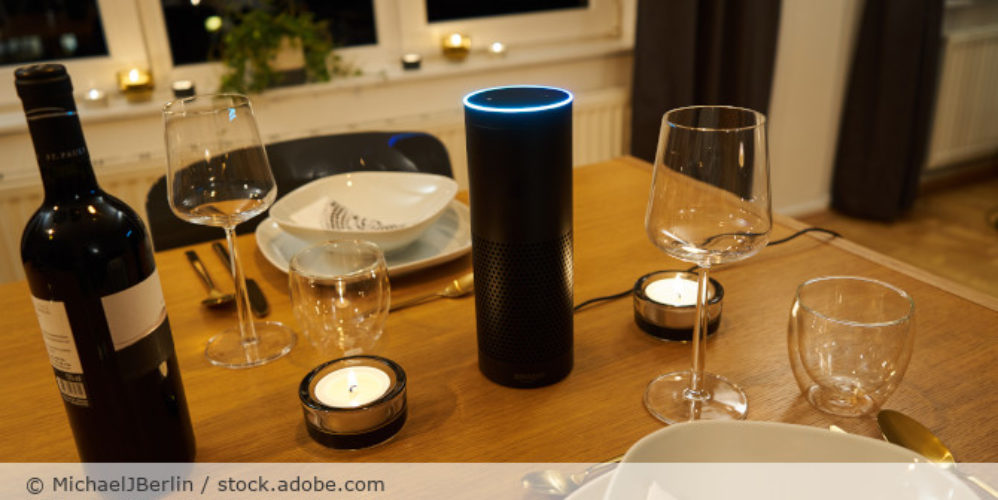The Regensburg (Bavaria) Regional Court has sentenced a man to 10 years in prison for manslaughter based on evidence from voice recordings of an Alexa smart speaker.
The Case
The court found the perpetrator –reportedly a notorious stalker– guilty of manslaughter, as, to the persuasion of the court, the man had killed his ex-girlfriend by strangling her to death during or shortly after sexual intercourse in December of 2019.
The verdict was based on evidence gathered from the man’s cellular phone data and from recordings of an Alexa smart speaker. While it could not be reconstructed when exactly or how the man gained access to the victim’s apartment, the court came to the conclusion that the man was in his ex-girlfriend’s apartment and it also reconstructed the time when he definitely had been at the crime scene. Here, Alexa comes into play: The woman had an Alexa smart speaker in her bedroom. Short before midnight, the device recorded a command of the perpetrator, activating the speaker. Another command of the man, stopping the device, was recorded by Alexa at 3am. The woman is believed to already have been dead at that time. There was, however, no recording of what happened in the time between activating and deactivating the device.
How the Evidence was Obtained
In Germany, the prosecuting authorities have the right to seize and screen data, which may include acoustic surveillance of private homes, as regulated in Sec. 100c of the German Code of Criminal Procedure. The question if the obtained data may be analyzed and used as evidence in court, depends on the circumstances of the case. Sec 100d of the Code of Criminal Procedure establishes an exclusion of evidence for conversations concerning a person’s private sphere. As in the present case the audio data was decisive in resolving a capital crime, the authority’s interest in criminal prosecution was deemed very high and overriding the perpetrator’s personals rights, which led to the evidence being admitted.
There was another hurdle for prosecution to take in this case: The data recorded by Alexa lay on Amazon’s servers in the US. In such cases, where the data in question is located on servers outside of Europe, the European authorizes will either require the assistance of the foreign authorities via letters rogatory, or the overseas-based company’s cooperation.
In the case at hand, the attorney public had launched a request with Amazon’s pertinent European office to provide information whether Alexa had recorded anything during the night of the crime and, if so, to make the data files available. A month later, Amazon agreed to transfer the data, so that it was not necessary to send letters rogatory to the judicial authorities in the US.
A First for Germany
This was the first time in Germany that recordings of a smart speaker were used as evidence in a court of law. In the US, this has occurred on several occasions already, one such case being the case in Ohio involving heart rate data from a cardiac pacemaker (https://www.datenschutz-notizen.de/your-heart-rate-data-can-land-you-in-jail-5918555/). In another case in 2017 in the US state of Arkansas, Amazon initially had refused to hand over data from an Echo speaker to the prosecuting authorities, but eventually did so after the accused had given his consent.
The Takeaway
This case shows that, generally, all recordings of smart home devices, such as speakers or heating and lighting systems, might be relevant in criminal investigations. Oftentimes, the data of such devices is hosted by US-based companies, which implies the –particularly from a GDPR perspective– interesting circumstance that personal data from EU data subjects is stored on servers in a country where the level of data protection is not the same as in Europe. Add the US CLOUD Act into the mix, and it becomes even more interesting. More information regarding this topic can be found in this article (in German).





